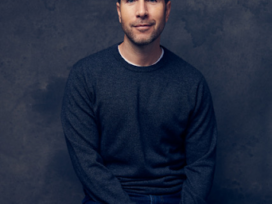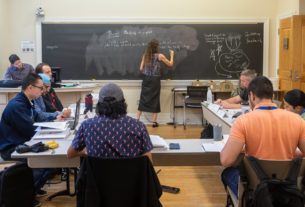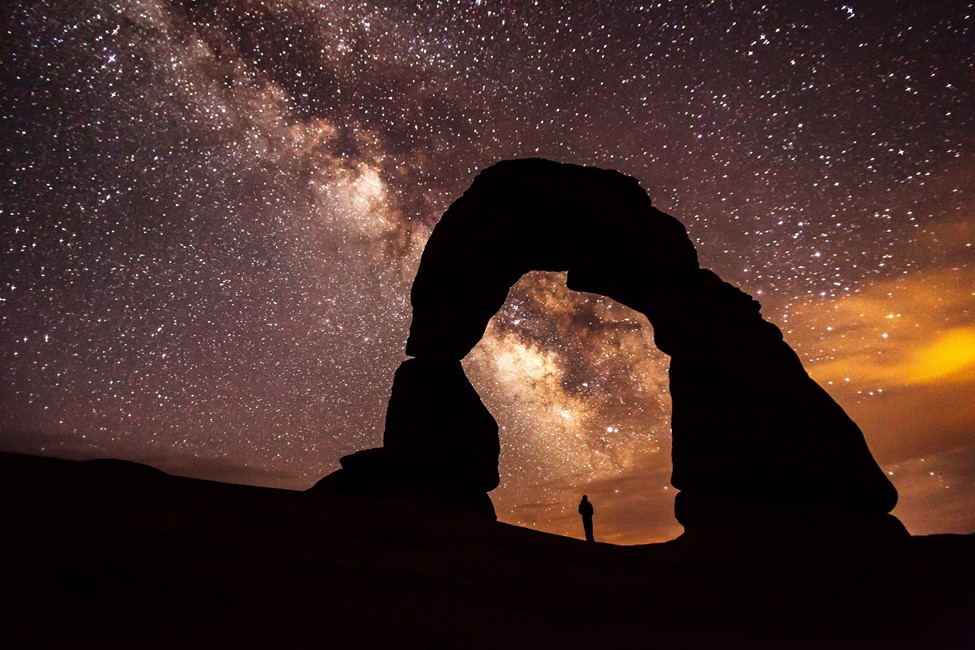
What Happened When Religion and Government Met
Joe Fowler, staff writer
The Student Government Association (SGA) president sat outside of Jimmy John’s reviewing research on the differences between fungal growth on organic and conventionally grown apples. Making use of his free time, he waited patiently for a discussion on recent changes to immigration law. Wadah Al Mulhim, the SGA president, is a Muslim immigrant from Iraq.
Al Mulhim agreed to speak about President Donald Trump’s controversial executive order from Jan. 27, 2017 titled Protecting the Nation from Foreign Terrorist Entry into the United States. The order included a temporary ban on travel into the United States from several countries with majority Muslim populations and initially affected visa and green card holders.
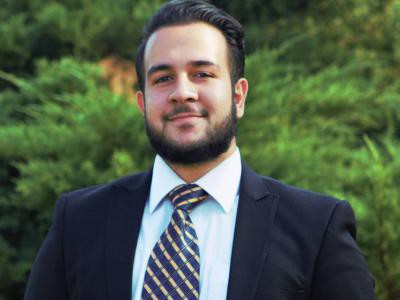
“The same person who passed the ban also said to ban Muslims six months ago. There is a connection,” Al Mulhim said of the executive order a week after its initial inception. Though quick to point out the poor phrasing and implementation of the executive action, Al Mulhim said that he was a strong proponent of both legal immigration and protecting the border and country, provided such actions serve to make everyone feel safe “within our sovereign borders.”
“If Trump protects the border, I agree, but that should protect everyone,” said Al Mulhim. The massive amount of protests that ensued over the hours and days immediately following the executive order failed to convey a message that citizens felt safe in America.
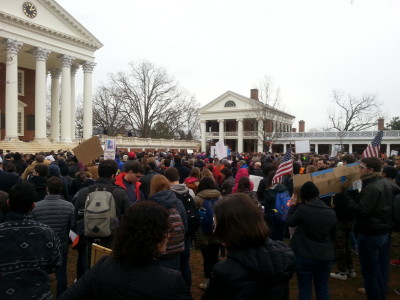
One such rally and march took place that weekend at the UVA Rotunda. Several hundred people convened at the Rotunda bearing signs that welcomed refugees and immigrants. Other signs simply read “RESIST.” Charlottesville Vice-Mayor Wes Bellamy spoke to the crowd wearing workout clothes and reasoning that people wearing suits and ties were responsible for causing the trouble and turmoil of contemporary America.
After the speakers finished, the march began with cheers in support of the many Muslim citizens in attendance and criticisms against politicians, particularly those currently occupying the White House.
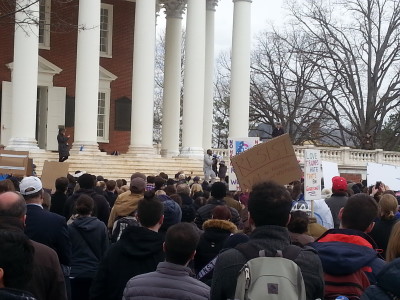
“People just kept showing up,” one attendee said of the march. Both the rally and march were peaceful and legal. Though there was a slight police presence for public safety, no major direct actions or other forms of civil disobedience occurred, though protesters sent a poignant message that was repeated at PVCC, City Hall and beyond. (Note: Print article ends here.)
Al Mulhim was one of those in attendance at the protest, though by the following week he was back to work as both a student and the SGA president at PVCC. He expressed strong affection for America. “This is democracy. We are fortunate enough to express our opinions.” He spoke a great deal about the first amendment as it grants freedom of expression, the freedom to peaceably assemble and to petition the government for a redress of grievances. Protests are one form those rights take.

Al Mulhim spoke on the other freedom granted by the first amendment, the freedom of religion. “I’m against any religious laws being passed. It would be hypocritical. It violates the first amendment,” he said.
But the executive order neatly evades any direct mention of religion. However, based on information contained in a report from the Forum in November of 2016, the language of the order reflects the definition given to Sharia Law during a seminar in Greene County prior to the general election.
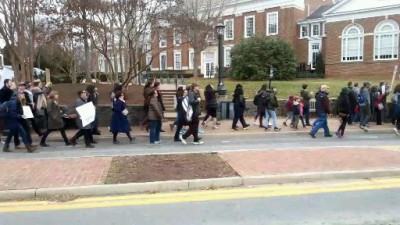
“I never heard of Sharia law until I got here,” said Al Mulhim on the subject. “I’d have to know what you mean by Sharia law before I can talk about it.” He went on to explain that the Arabic word “sharia” simply means religious rules, but that it does not represent any law that Muslims are required to follow.
Al Mulhim added that when he has certain notions or prejudices about other religions, “I go to my Christian and Jewish friends, and I go and ask them questions.” He further explained that his friends correct him on misunderstandings and misconceptions. His final answer to the question of Sharia law was simply to say, “I’m an Arabic-speaking Muslim. Extremism is wrong.”


